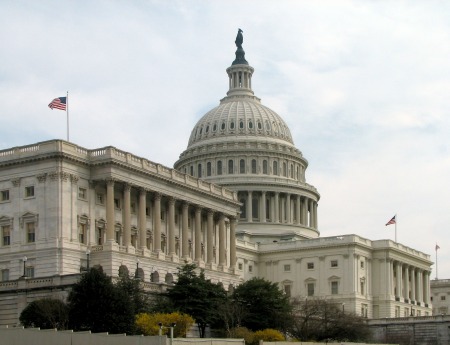House Subcommittee Approves Data Privacy Legislation
But both sides signal the historic effort is still a work in progress

The smarter way to stay on top of the multichannel video marketplace. Sign up below.
You are now subscribed
Your newsletter sign-up was successful
Congress took another step Thursday (June 23) in its years-long process of trying to come up with a bipartisan comprehensive federal data-privacy law, a measure both Democrats and Republicans have said is needed in an online world of ubiquitous movement and use of data.
That step came in a lengthy markup and subsequent “yes” vote on an initial version of the American Data Privacy and Protection Act in the House Energy & Commerce Committee's Consumer Protection subcommittee. The vote approved what both sides signaled was an initial pass at a bill that needs more work.
Democrats and Republicans indicated this latest attempt had the best chance in years of gaining bipartisan support, but all said more work needed to be done. The decision to advance the bill was more about signaling that all were willing to continue to work on it than that it had reached even its approximate final form.
The legislation was approved and favorably referred to the full committee by voice vote with no audible nays to be heard. It has already seen various changes since the initial draft, changes reflected in the bill which was approved as an Amendment in the Nature of a Substitute (which committee members shorthand to “AINS”) to the original draft.
That draft bill was circulated earlier this month.
There were four amendments offered up to the substitute during the Thursday markup, but all were immediately withdrawn. The idea behind offering them was to make various points about what their sponsors felt needed to be changed in the bill. They were withdrawn so the bill could continue the process of change, which will come in negotiations between now and a markup/vote in the full committee, and also between that vote and a full House vote if necessary.
Rep. Kelly Armstrong (R-N.D.) offered and withdrew three of the four amendments. His issues were with what he said was an insufficiently clear preemption of state laws, raising the possibility privacy violators could face multiple lawsuits.
The smarter way to stay on top of the multichannel video marketplace. Sign up below.
Armstrong said he was concerned courts will read the bill's numerous exemptions from state law preemptions as the effective absence of state law preemption altogether. Some courts view carveouts from preemptions as fatal to the overall preemption clause because it clouds Congress' intent and those courts default to preserving all relevant state laws, he said.
Rep. Armstrong said the bill as currently written could subject a covered entity to multiple enforcement actions — federal, state and private rights of action— on the same prohibited conduct.
The other amendment offered to make a point and signal further negotiation was from Rep. Debbie Lesko (R-Ariz.). It related to what she said was Big Tech's discrimination based on political viewpoint, both Republican and Democrat.
Among many other things, the bill as approved by the subcommittee would allow web users to opt out of “targeted advertising” when surfing the web, whose free content has been supported by such ads.
Also: Privacy Bill Allows for Turning Off Targeted Advertising
The Information Technology Industry Council (ITI) has told Congress that while it thought the legislators were on the right track, the bill's definition of “targeted advertising” would “prevent the ad-supported internet business model from continuing.”
Since 2019, ITI, whose members include some of the most-affected edge providers — Amazon, Apple, Google, Meta (formerly Facebook) and Twitter — has been arguing that it is part of the solution to data privacy, offering up what it says is a legislative roadmap for a federal privacy law. ▪️
“For years, the technology sector has called on Congress to enact comprehensive federal privacy legislation that builds mutual trust, protects consumers, and supports continued innovation,” said John Miller, ITI SVP of policy and general counsel of the subcommittee's vote Thursday. “Today we are one step closer to that reality. While the bill in its revised form represents tangible progress, and we appreciate the Subcommittee’s efforts to address critical issues we and others raised, more work remains to recalibrate this measure before it is enshrined as a national privacy standard. We commend the Subcommittee for advancing this important effort and look forward to continuing to constructively engage with policymakers as the bill moves forward.”
Contributing editor John Eggerton has been an editor and/or writer on media regulation, legislation and policy for over four decades, including covering the FCC, FTC, Congress, the major media trade associations, and the federal courts. In addition to Multichannel News and Broadcasting + Cable, his work has appeared in Radio World, TV Technology, TV Fax, This Week in Consumer Electronics, Variety and the Encyclopedia Britannica.

